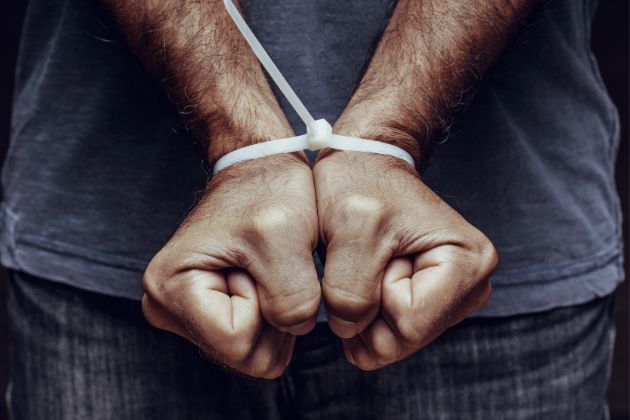Hanging from a Ceiling-Mounted Winch
Hanging from a Ceiling-Mounted Winch
Behind the Scenes with Joel
The only way you can make your main character truly heroic is to put him (or her) in impossible situations and show us what he’s made of.
In The Beirut Protocol, I tried to do just that.
Marcus Ryker and two colleagues were captured by terrorists on the Israel-Lebanon border and dragged deep behind enemy lines. Now, they’re prisoners in southern Lebanon. Bound and hanging from a ceiling-mounted winch, Ryker knows that his terrible situation is about to get significantly worse.
“Don’t fool yourself, American,” al-Masri said. “You’ll talk. The only question is how much pain you suffer before you tell me what I want to know.”
When Marcus remained quiet, the colonel nodded to his sidekick, who reached over and flipped a switch. Electricity surged through the cables. Marcus’s body went rigid, then began to shudder. His left arm started to spasm. Then his right knee and foot did too. He was hit by the stench of burnt hair. The pain was absolutely brutal.
(Rosenberg, Joel C. 2021. The Beirut Protocol: 67-68. Tyndale House Publishers.)
I’ve put Ryker into all kinds of crazy situations over the years. He’s been betrayed and accused. He’s had to sneak into dangerous countries and escape back out. He’s been tortured, shot, and nearly blown up. He’s even had to make a high-altitude jump out of a doomed airplane. Why is it that he always seems to find himself in these life-or-death situations?
Because there are a lot of really wicked bad guys out there.
And not just wicked but smart.
I also try to put Ryker up against foes much smarter than him. Stronger. Better resourced. More politically connected. Better shots. More skilled in hand-to-hand combat.
The question, always, is whether Ryker can find something deep within himself to overcome overwhelming odds and overwhelming firepower when a lesser man would fold . . . and die.
What’s more, I try to put Ryker in situations that are going to reveal his moral compass and test his most deeply held principles and convictions.

In The Beirut Protocol, it would have been bad enough if Ryker had been captured alone by bloodthirsty jihadis. But my goal was to make the situation even more excruciating for Ryker by having his colleague, Kailea Curtis, get captured—and horrifically brutalized—with him, along with a young Israeli intelligence officer who is not just untrained and unprepared for this situation but is closely connected to a high-ranking Israeli leader, jacking up the stakes enormously for Ryker. Even if he can figure out a way to escape, should he? He can’t leave a woman and a young Israeli behind, can he? But what if they’re in no condition to run?
Now, in my latest book, The Libyan Diversion, everything that can go wrong does go wrong. Last time, I ripped Ryker’s physical freedom and well-being away from him to see how he’d react. This time, I rip away some things far worse—and put some of the people he loves most in mortal danger. How’s he going to handle it when his own government turns against him? When it’s not just his life that’s at stake but one of the people dearest to him?
Ryker’s enemies are smart, strong, merciless, and unrelenting. Once again, our man is going to have to dig deep to find the strength not just to survive, but to win. Is he up for it? Are you? Pick up your copy of The Libyan Diversion today and find out for yourself!







